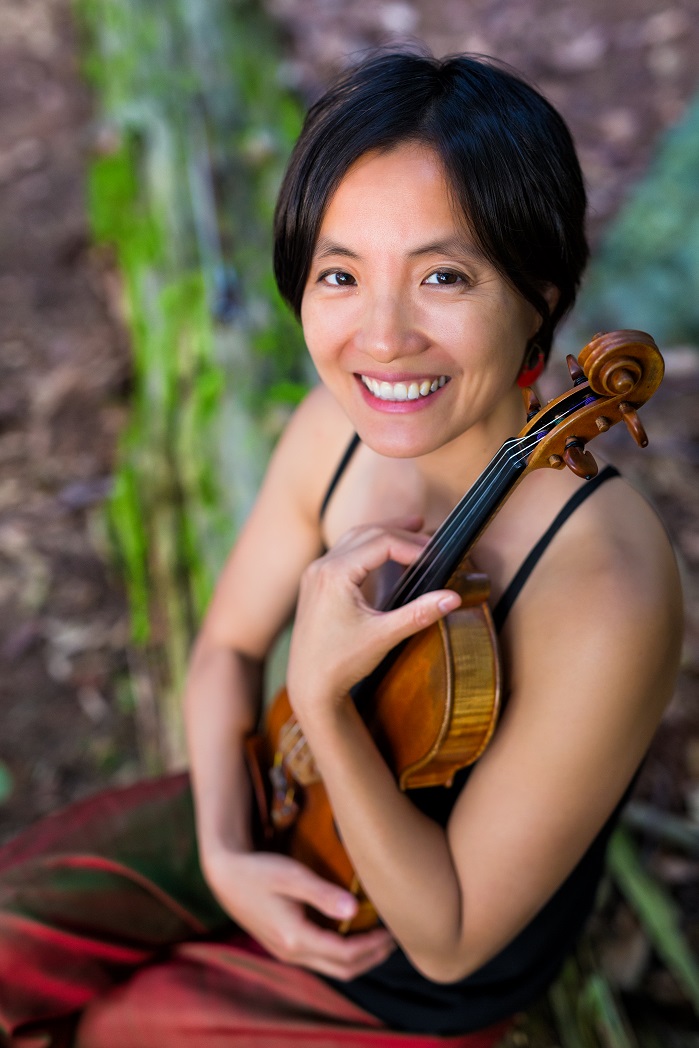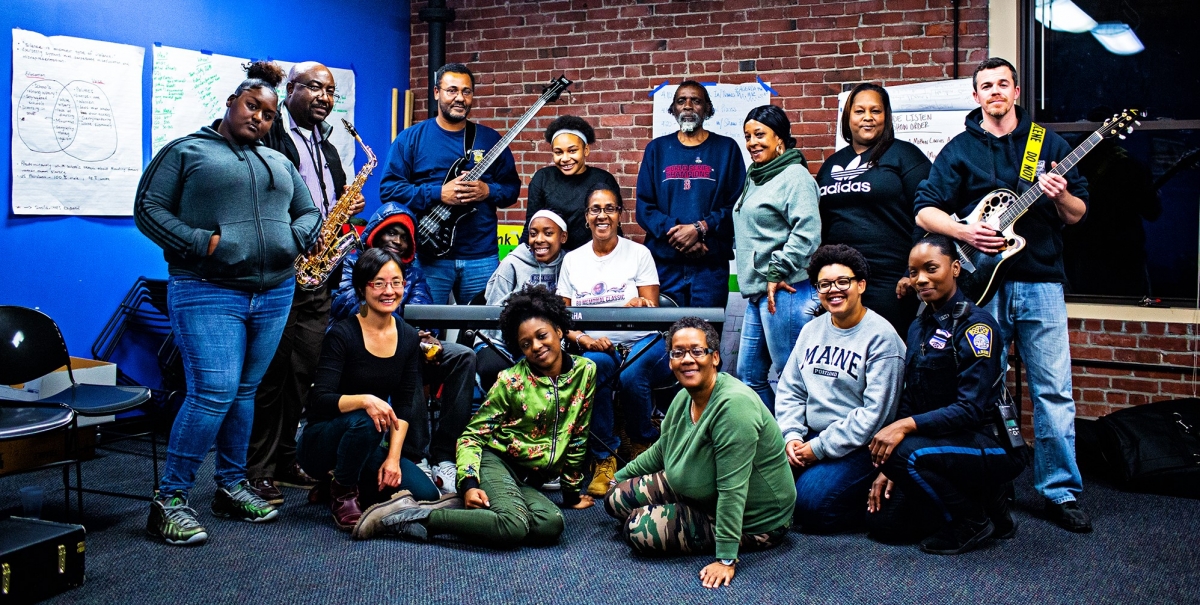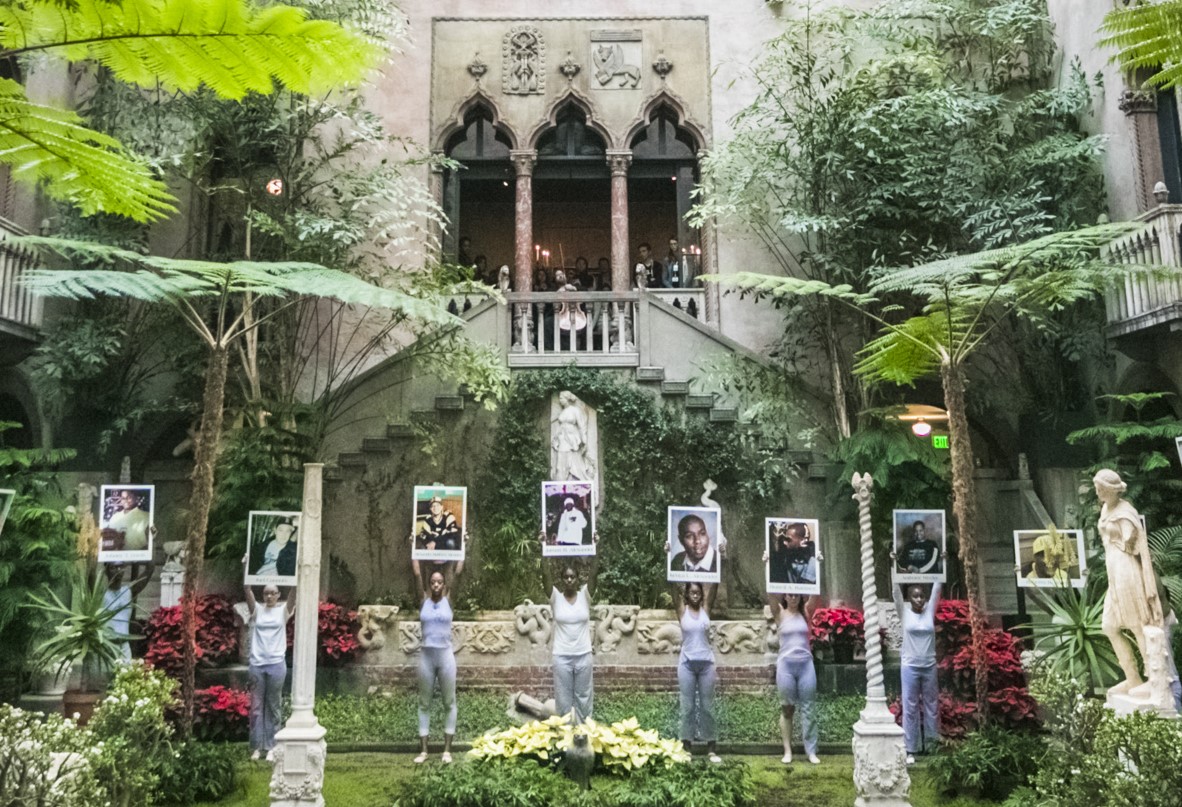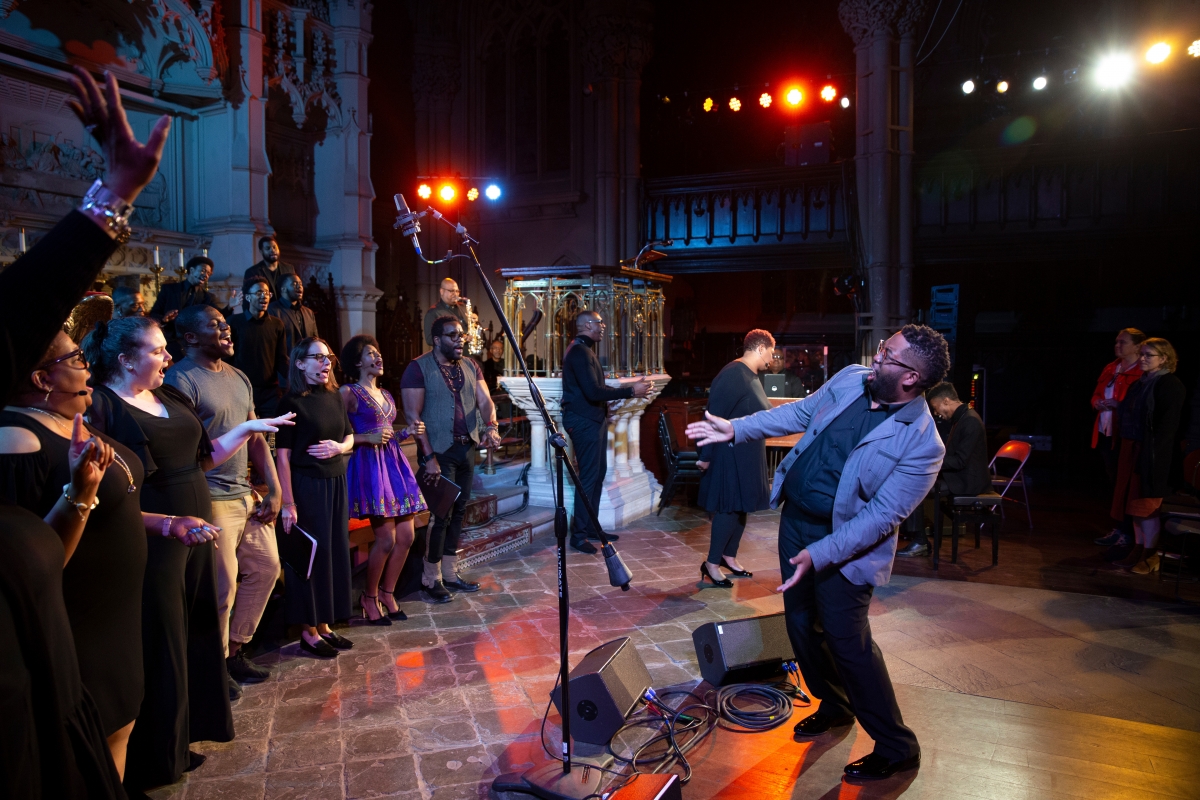Spotlight on 2020 Johnson Fellowship Nominees: Celebrating How Artists Transform Communities
Posted by May 19, 2020

Ms. Pam Korza
We need to celebrate the important work that artists do every day. They imagine creative courses to solve problems. They create welcoming spaces to exercise cultural and civil rights and to challenge the status quo. They orchestrate rituals of spiritual and emotional healing. They configure single words, movements, marks, sounds to make meaning, purpose, and full-on expressions of beauty that remind us of the most fundamental things we humans share. Especially now, as we strategize to ensure that artists are supported and integrated into COVID-19 recovery and reconstruction, we need ready stories of their unique contributions substantiated with the real impacts of their approaches.
Americans for the Arts’ annual Johnson Fellowship for Artists Transforming Communities recognizes artists whose art and creative strategies, along with compassion and commitment, are making real change. In April, we featured in both Arts Link (our member magazine) and ARTSblog the extraordinary musician and composer Hannibal Lokumbe, who received this year’s Johnson Fellowship. Beginning with this post, a new ARTSblog series will celebrate the 11 music artists who were the exemplary 2020 Johnson Fellowship nominees.
Vastly different in their artistry—from classical orchestral work and blues, gospel, and American roots traditions to punk rock, improvisational, and genre stretching forms—each artist in their own right is advancing community, civic, and social goals. In this first blog we feature Shaw Pong Liu and Phil Woodmore, musicians and composers who, among many musical contributions to their communities, have modeled significant projects to address tragic police shootings of young Black men and to stimulate the personal and institutional connections and dialogue needed to understand causes and move toward healing and solutions.
Shaw Pong Liu, Boston, Massachusetts
 Violinist and composer Shaw Pong Liu believes the deep listening that music cultivates offers a path to transformative social dialogue and healing. Her projects are participatory and honor many voices: Sunbar connected Bostonians with sunlight, warmth, and each other during cold winter months and a vision of a future mobile solarium; Sing Home, a song sharing project with Chinatown residents, workers, and visitors, used songs from home to start conversations about immigration, neighborhood, and cultural and civic identity.
Violinist and composer Shaw Pong Liu believes the deep listening that music cultivates offers a path to transformative social dialogue and healing. Her projects are participatory and honor many voices: Sunbar connected Bostonians with sunlight, warmth, and each other during cold winter months and a vision of a future mobile solarium; Sing Home, a song sharing project with Chinatown residents, workers, and visitors, used songs from home to start conversations about immigration, neighborhood, and cultural and civic identity.
Liu’s signature endeavor is Code Listen. Begun in 2016, the project uses songwriting and performances to support healing and dialogue around violence, racism, and police practices. It is a visionary partnership between Liu, the Boston Police Department (BPD), teen artists, family members surviving homicide, and community organizations. One component, musical memorials for families, centers around large-format photographs commemorating loved ones lost to homicide. “One thing a grieving family wants is for their loved one not to be forgotten,” said Clarissa Turner, whose son was murdered and who founded the support organization Legacy Lives On. “You know, they are a news item, and it’s usually negative. Then they get forgotten.”
Facilitated by the artist, BPD Homicide and Multimedia staff work with community support groups including Legacy Lives On to gather and prepare the photographs. These poster tributes are displayed as part of the annual Louis D. Brown Peace Institute’s Mother’s Day Walk for Peace along a parade route and at Boston City Hall, where they are accompanied by professional musicians then gifted to the families.

Code Listen also includes workshops that bring together police, teens, and homicide survivors in songwriting and playing music. Music-making builds trust, breaks down barriers and stereotypes, and opens conversation that leads to new understanding about each other as human beings. Police officers and teens formed the Code Listen band which has evolved to include family survivors of violence. The group has performed original songs at events across the city, including musical tributes at Boston’s Gardner Museum, and at the Kennedy Center where Liu was a 2018-19 Kennedy Center Citizen Artist Fellow. Clarissa Turner, who has participated in the band and in performances, reflected, “Shaw Pong breathed life back into people who were killed. … She taught us how to find different outlets on how to survive through music.”

Initially supported through the Boston Artist in Residence program (which links artists to city agencies and is funded by the City through the Office of Arts and Culture), Code Listen also opened up new ways for the BPD to achieve its community engagement goals. It brought BPD officers in direct relationship with families and youth they typically don’t connect with, dispelling misconceptions through music-inspired dialogue, and strengthened or built new relationships with other agencies in the city that can be important in BPD’s future work.
Phil Woodmore, St. Louis, Missouri
 Vocal music educator, director, composer, and Saint Louis native Phil Woodmore has been creating a community-connecting lifeline for youth and adults through music for 23 years. In his time teaching and educating, Woodmore has approached music as a vehicle for youth to develop into good citizens. He has guided young people from various socioeconomic backgrounds to exercise their musical voices while also creating a supportive space that allows student to be vulnerable, process and express their emotions, and develop empathy as they grow through life experiences. Over the past decade, he has expanded his reach into the community directing Allegro, the Center of Creative Arts’ Music Company; the Metropolitan Police Department Choir; and as minister of music at Trinity Community Church.
Vocal music educator, director, composer, and Saint Louis native Phil Woodmore has been creating a community-connecting lifeline for youth and adults through music for 23 years. In his time teaching and educating, Woodmore has approached music as a vehicle for youth to develop into good citizens. He has guided young people from various socioeconomic backgrounds to exercise their musical voices while also creating a supportive space that allows student to be vulnerable, process and express their emotions, and develop empathy as they grow through life experiences. Over the past decade, he has expanded his reach into the community directing Allegro, the Center of Creative Arts’ Music Company; the Metropolitan Police Department Choir; and as minister of music at Trinity Community Church.
A pivotal moment in Woodmore’s life’s work occurred two years after young Michael Brown was tragically killed by a white police officer in Ferguson, Missouri, fueling local and national outcry. In 2016, Bryan Doerries, artistic director of acclaimed Theater of War Productions, approached Woodmore to compose a musical score for Antigone in Ferguson, a project that came about when St. Louis community members invited Doerries to do a project about Ferguson. In Theater of War’s unique genre, Antigone in Ferguson takes the form of a dramatic play reading of a classical text (here, Sophocles’ Antigone) performed by acclaimed actors—and in this case, with the addition of a powerful choral dimension. Doerries knew this could not be “a choir that would just preach to the choir.” It needed a music director who could bring together singers whose direct experiences would reflect the range of perspectives surrounding Michael Brown’s death and bring an authenticity to the music and dialogue.

The project profoundly spoke to Woodmore’s persistent concern for healing the community. Within a month he wrote a gospel oratorio and assembled a chorus that included Michael Brown’s teachers and friends, community activists, police officers, and concerned residents of St. Louis and New York City.
Antigone in Ferguson premiered at Normandy High School, from which Michael Brown had graduated. “I was overwhelmed to see how cathartic the project became for the community,” said Woodmore. “To watch a wave of healing and encouragement wash over the audiences during the singing of ‘I’m Covered’ at the end of the first performance was overwhelming. There was not a dry eye in the house.” Antigone in Ferguson resonated nationally as well, as racial tensions around police killings persist. It was presented in other cities and ran for 10 weeks at the St. Ann & the Holy Trinity Church in Brooklyn, stimulating powerful dialogues with audiences from all walks of life about issues of police violence.
The transformative work of these two artists offer other artists and their community and civic partners tested examples of what makes this work effective, both artistically and as a catalyst toward achieving civic and social goals. Before the coronavirus crisis hit, both Liu and Woodmore had been documenting their practice: Liu’s Kennedy Center Fellowship put her in contact with the Washington National Opera and inspired a pilot training program for the Opera’s teaching artists that Liu developed as a prototype for helping teaching artists build community-based skills, particularly in the context of fostering positive police-youth relations.
For Woodmore, the Antigone experience crystallized the focus of his doctoral dissertation on the transformative power of music toward social justice ends. Now, “Doctor Phil” wants to make accessible this type of socially engaged music practice to inspire and inform “non-music people” about the transformative application of music in times of struggle. In fall 2020, he aims to release a reader-friendly book about the methods of Antigone in Ferguson and its impacts on Ferguson and other U.S. communities.
Such artist-led training and documentation will be critically important to prepare and scale up artists’ work creatively, responsibly, and effectively in COVID recovery and reconstruction strategies, and to make the elusive and lofty notion of “community transformation” a reality.





